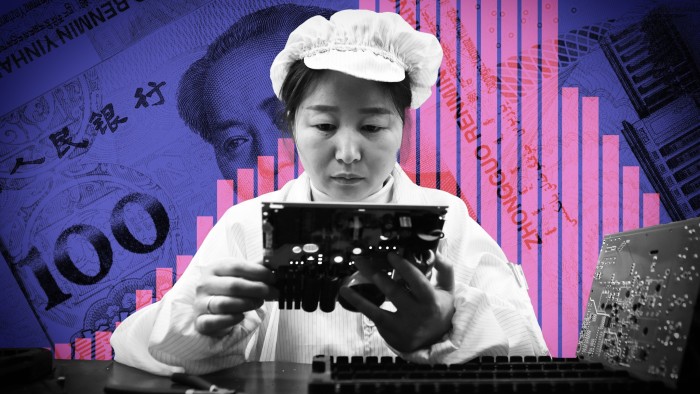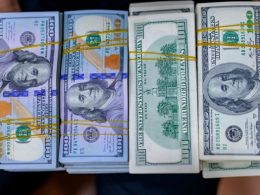China is expected to release economic data on Friday showing the world’s second-largest economy expanded at a brisk pace of about 5 per cent in 2024. Many Chinese are, to put it mildly, unconvinced.
“I don’t know where this growth is supposed to be coming from,” said Hao, owner of a printing and advertising company in Beijing, who asked to be identified only by his surname.
“The authorities can say whatever they want,” he said, suggesting the official data was “blind to reality”. “For me, 2024 has been the worst year in my 20-plus years of running this business.”
Economists, and even senior officials, have long questioned the accuracy of China’s GDP numbers, which are released by the National Bureau of Statistics and almost always hit annual government targets with uncanny accuracy.
While Beijing’s goal of expanding GDP by about 5 per cent year on year for the second year running was modest compared with past decades, such levels would thrill most large countries — particularly if, as in China, they were suffering a deep property sector crisis.
But for most Chinese people, their experience does not match the growth figures. Many who work in sectors from banking and local government to restaurants and ride-hailing say current conditions feel more like a recession.
“They said 5 per cent growth year after year, but do people feel this growth? For ordinary people, I’m telling you, it’s just about earning enough to get by and not starve,” said a driver for the ride-hailing company Didi in Beijing. “Forget about growth or development.”
An economist at a Beijing university said many scholars believed the official GDP growth data was often inaccurate by up to plus or minus two percentage points, but in the past two years, the distortion had grown.
He pointed to China’s consumer price inflation, which has been running at less than 1 per cent for months, and producer price growth, which has been negative for more than two years, as signalling weak demand.
“Middle-class people are losing their jobs for the first time,” said the economist, who declined to be named. “In 45 years, this never happened.”
Questioning official economic data and discussing negative economic trends has become increasingly sensitive in China. Gao Shanwen, chief economist at state-owned SDIC Securities, said last month that China’s economy might have grown at an average of only about 2 per cent in the past two to three years.
The Wall Street Journal reported last week that Gao had been banned from public speaking for the comments. People familiar with the matter said Chinese financial authorities had launched an audit of Gao following the remarks.
Many foreign economists also question the official figures. Analysts at US think-tank Rhodium Group said in a research note that growth last year was probably about half the official target, or 2.4-2.8 per cent.
The collapse of China’s property sector had “sidelined” local government investment and consumption — two important economic engines — in 2024, leading Beijing to announce a series of urgent stimulus measures, they said.
China’s official data probably exaggerated household and government consumption, as well as gross capital formation, or investment, which they estimated as negative last year compared with a year earlier, the analysts added. These areas have been hit by the property downturn.
The picture chimes with the experiences of people working in China.
A credit officer at a bank in central Anhui province said the value of the portfolio of outstanding loans he managed had fallen 20 per cent this year. On a recent trip to Hangzhou, capital of the wealthy neighbouring province Zhejiang, he found that a client’s factory, which a year earlier had employed 1,700 people, now had 1,100.
“More people are repaying their loans in advance,” said the credit officer, adding that they found it “more cost-effective” to reduce debt than to invest. He and his wife had also cut back on their own “unnecessary” spending, such as dining out.
Even state-owned companies are not immune. An employee at one state-owned group in southern Fujian province said authorities in Beijing had asked it to expand investment to support the economy in the fourth quarter. In response, the company brought forward spending on a 25-year project.
But at the same time, it cut salaries — by more than 20 per cent compared with three years ago. “I got promoted at the beginning of ‘24 and my monthly income was still Rmb1,000 ($136) less than in ‘23,” said the employee.
For many families, the lunar new year holiday this month might bring at least some short-term relief from the tough conditions, as relatives reunite in their hometowns, bringing gifts and red envelopes stuffed with money.
But not for Hao, whose printing and advertising company suffered a 40 per cent decline in revenues last year and saw profits fall even more. He plans to skip this year’s festivities in his hometown in eastern Shandong province.
“At my age, going back means giving red envelopes to the younger generation, and I simply don’t have the money to do that,” he said.
Source link









